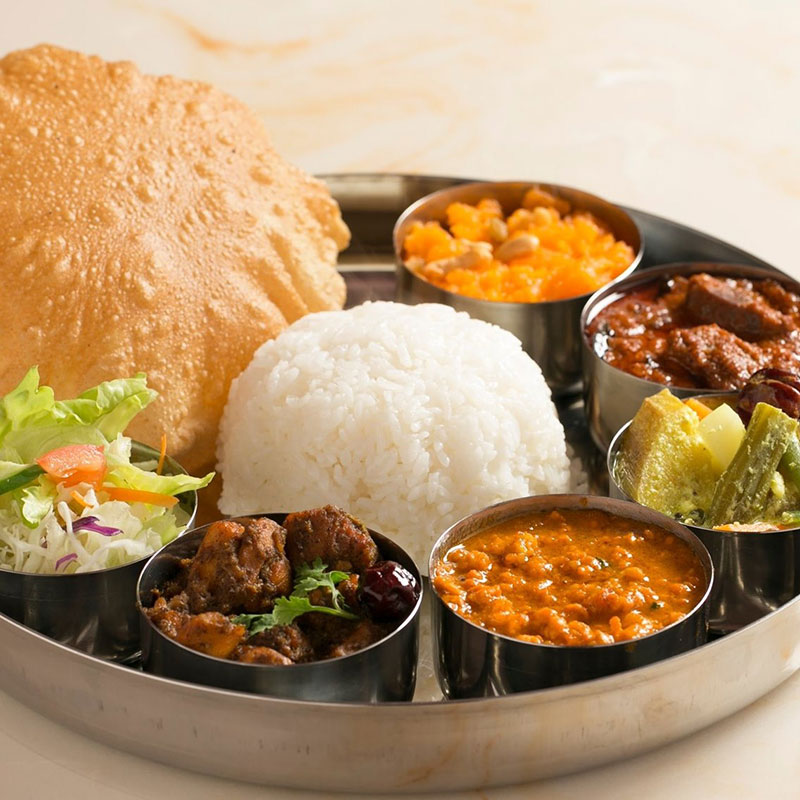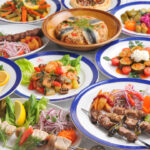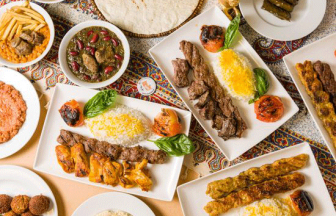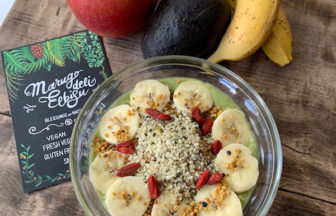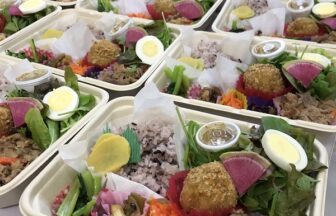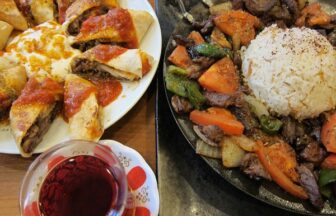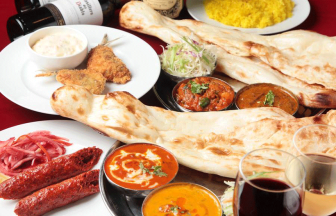Purveyor to the Indian Embassy! “Sri Balaji Suidobashi” is an exotic and fascinating South Indian restaurant that uses coconut and curry leaves lavishly.
Sri Balaj is a South Indian restaurant located a five-minute walk from Suidobashi Station. Sri Balaj is the most famous deity in South India. It is also a Hindu temple dedicated to the god of money, and is said to receive the largest amount of donations annually among India’s many temples.
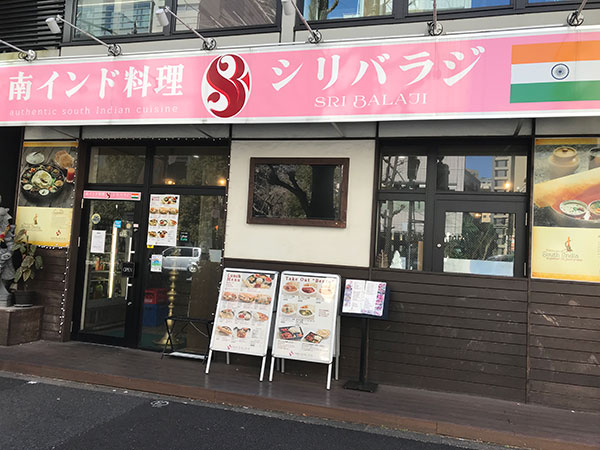
Exterior
At Sri Balaj, we strive to provide our guests with delicious and healthy South Indian cuisine, maintaining the authentic flavors of the region without any alterations. South Indian cuisine, which has recently become increasingly popular in Tokyo, is less oily than the popular North Indian cuisine in Japan, and boasts a crisp, spicy finish. It uses unique herbs and spices, including shredded coconut and curry leaves.
The restaurant offers a variety of dosas, from set meals like rice meals to light tiffins.
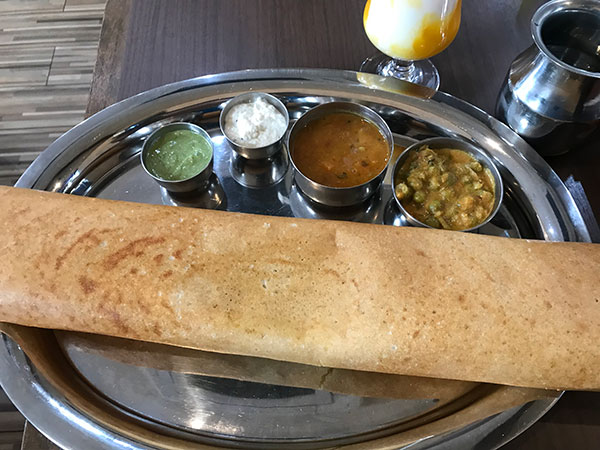
Masala Dosa
Made from rice flour and bean paste, the dosa has a thin, crisp texture and a soft, fragrant bean aroma. The dosa is served with homemade chutney, further enhancing its flavor. Chutney, also known as chutney, is a paste-like condiment essential to Indian cuisine. Siribaraji’s dosa is incomplete without this chutney. The mint chutney, with its refreshing mint, spiciness from chili, the distinctive flavor of coriander, and a touch of saltiness, is the perfect complement to the dosa. The coconut chutney, with its mellow yet rich flavor of shaved coconut, instantly enhances the tropical feel. Of the many dosas available, our recommendation is the masala dosa, filled with plenty of spiced potatoes!
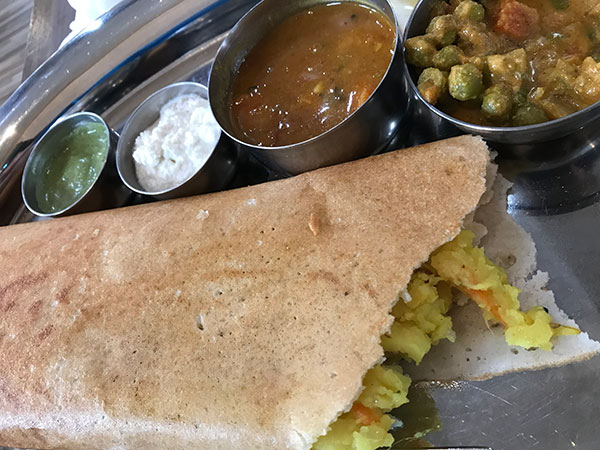
Masala Dosa
The table may look small in the photo, but Siribaraji’s masala dosa is so large it spills over the table. It comes with a bean and vegetable curry sambar and chutney. Enjoy the unique and exotic flavors of the tropics, with a spicy and sour savory taste.
We also offer fish curry using swordfish and vegetarian dishes using fresh vegetables!
Sirivaraj serves authentic South Indian cuisine, the birthplace of spices and Ayurveda. Known for the Kerala region facing the Arabian Sea, South India is known for its black pepper and other spices. All spices and herbs are imported directly from India. The chef, a native of South India who previously worked at a famous hotel in Tamil Nadu, is a Muslim himself. While not Muslim, the entire food menu is halal. Nearby, popular hotels like the Garden Hotel and Tokyo Dome Hotel attract many Muslim tourists from Singapore and Malaysia. The Indian Embassy is also nearby, so you’ll often see embassy staff and Indian families. On weekends, the restaurant is bustling with customers returning from events at Tokyo Dome and tourists, while weekday lunches are bustling with students and office workers.
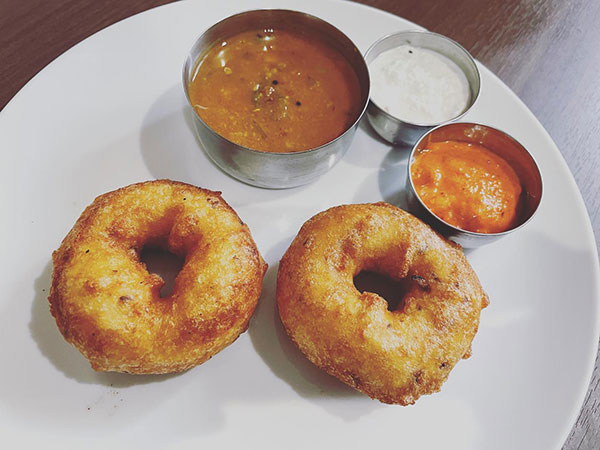
Plain Vada
Siri Balaji offers a variety of healthy and unique dishes, including sambar, a signature South Indian vegetarian dish, and vada, a deep-fried bean paste dish. India has a large vegetarian population, so restaurants almost always offer both vegetarian and non-vegetarian options, and the vegetarian dishes are delicious. Many Indian vegetarian dishes are lacto-vegetarian, featuring cheese and yogurt, making them very satisfying. Yogurt is the perfect accompaniment to a spicy curry. While mango lassi, a dessert staple at Indian restaurants, is a must-try at Siribaraji, the mango kulfi is a must-try. The rich, smooth coconut ice cream and sticky mango create a perfect pairing. The chai is poured from a high, authentic height, making the fluffy bubbles a delight to watch.
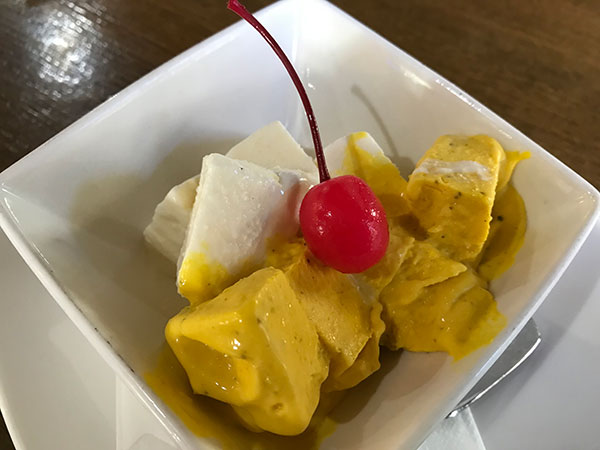
Mango kulfi
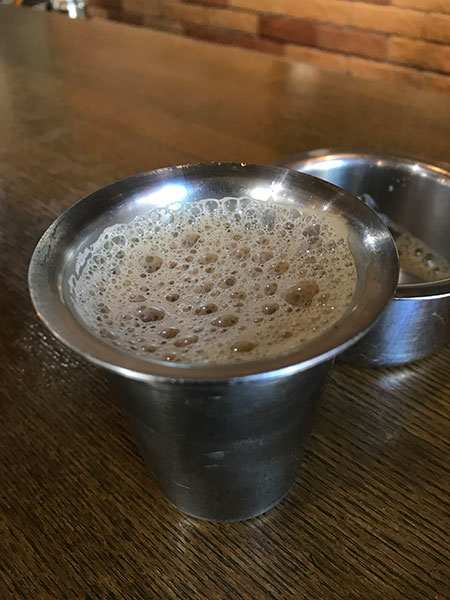
Chai
Enjoy Siribaraji’s cuisine, packed with the delicious herbs and spices that will soothe your mind and body.
Supervisor / Recommender

- Halal Supervisor and Foreigner Food Coordinator (Cooking, Consulting, Public Relations)
-
Click here for introduction
I currently work as an editor, but my previous job was as a chef, with many years of experience working in hospitals, restaurants, and the food service industry. Looking back, I think my connection to halal may have already been there.
Decades ago, I once worked in a cafeteria at an auction venue. Over 60% of the visitors were foreigners. Many Muslims were present, and the venue had a mosque-like prayer space. I remember being frequently asked questions about whether the meat was halal and what kind of meat it was. At certain times, the cafeteria would become as lively as a festival. The Indian restaurant next door would generously serve free biryani, curry, and sweet drinks to everyone who came. Over 100 people, including people wearing bright red turbans, galabeyas, and traditional attire, gathered in the cafeteria, all sitting around the same table and enjoying a truly enjoyable time. Looking back, it was iftar, the end of fasting, and I understand the significance of sharing, but at the time I was ignorant of halal and Islam, and didn't even consider how to respond. They only ate the curry made by the Indians in the restaurant. As I studied halal, I realized, "I wanted to eat Japanese food, but I couldn't." I regret not doing anything even though there was something I could have done.
If only it didn't contain pork! If only it didn't contain wheat or buckwheat! I could eat it... Food insecurity is different for each person.
That's why I think it's important to learn about the differences in culture, religion, and lifestyle that underlie it, and to create an environment where everyone can enjoy delicious meals in comfort.
The desire for delicious, safe, and secure food is universal. The times are calling for people to live in new ways that transcend borders and religions. I hope that halal can be a gateway to eliminating food insecurity, contributing even in some small way to a society where people can coexist and prosper with more liberal thinking, and to global harmony beyond.
Latest entries
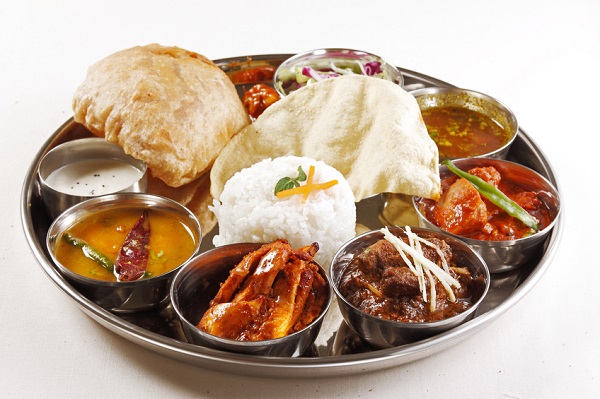 Tokyo2023年11月4日Dakshin South Indian Restaurant Otemachi Branch
Tokyo2023年11月4日Dakshin South Indian Restaurant Otemachi Branch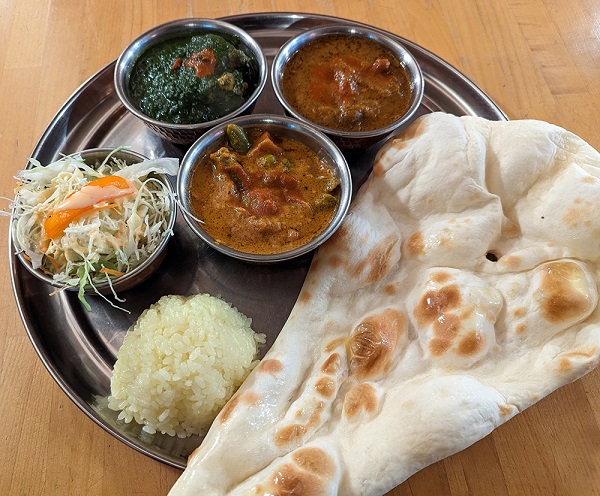 Tokyo2023年10月23日Gandhi Mahal
Tokyo2023年10月23日Gandhi Mahal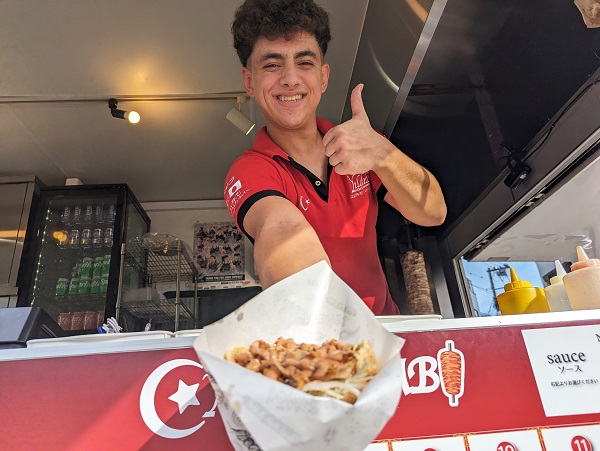 Tokyo2023年10月23日Yıldız KEBAB
Tokyo2023年10月23日Yıldız KEBAB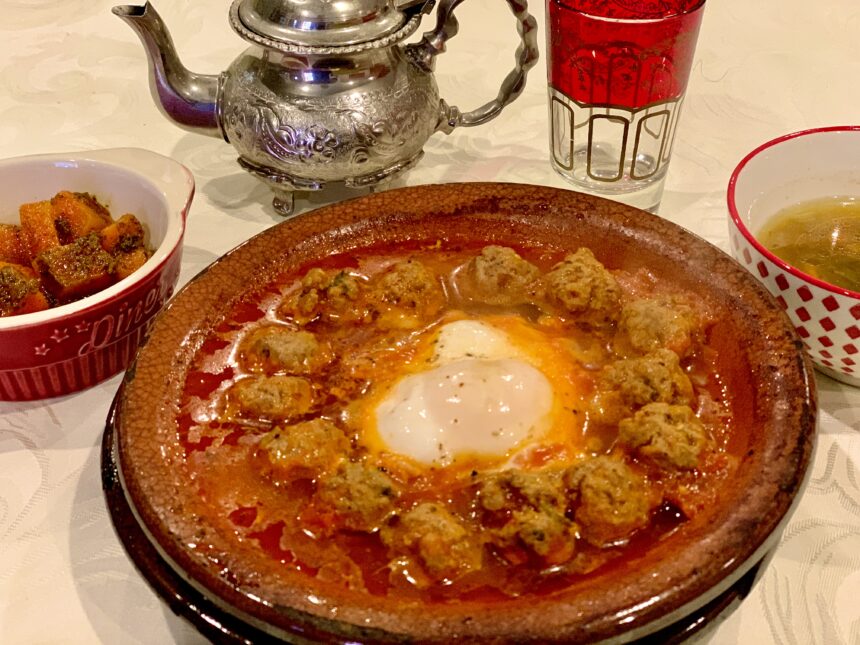 Tokyo2023年10月4日Restaurant Morocco
Tokyo2023年10月4日Restaurant Morocco

